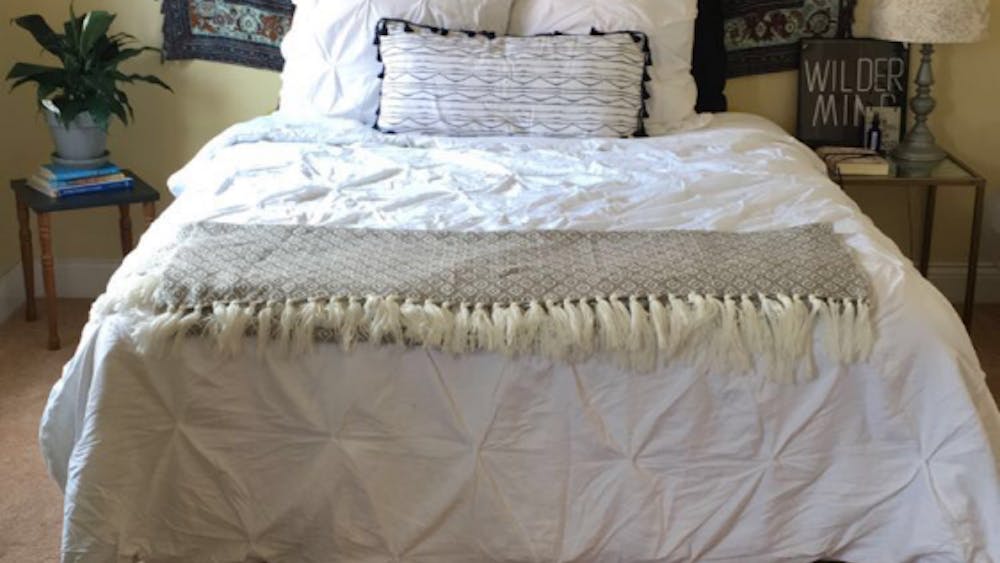Student Legal Services provides most students free lease analysis where lawyers help students understand the fine print of their contracts.
SLS director Stacee Williams said she encourages students to bring their leases into SLS before signing so they fully understand what they are agreeing to. Students can make an appointment or simply walk in, Williams said.
There are a few common things SLS sees in these contracts that students should look out for as they sign off-campus housing leases.
One of the most common things students may not understand when signing is the meaning of a joint and several liability lease, Williams said.
Often, several people sign a lease together, and each expects to pay only their portion of the rent: one quarter if they have three roommates or one half if they have only one roommate.
However, in a joint and several liability lease, each signer agrees to be responsible for the entirety of the rent. This means if one roommate unexpectedly moves out, for example, the remaining roommates must still find a way to pay the full rent.
“We always advise students to pick their roommates with care,” Williams said.
Another common aspect of leases that might confuse students is a requirement that says if tenants fail to pay rent or pay their rent late, they can be evicted with 10 days’ notice, Williams said.
Williams said this kind of rule is generally not enforceable. This is because the landlord is legally obligated to file a complaint in court before evicting the tenant if a tenant does not choose to move out.
“A lot of students don’t know that, so they’ll rush around to try to find another place to live without making the landlord go through those steps,” Williams said.
When it comes to security deposits and maintenance, Williams said there are a few different things to look for when signing leases.
Sometimes contracts include a list of amounts tenants are supposed to pay for painting, carpet and other similar upkeep costs.
Williams said she has argued these charges are not enforceable because state law requires security deposits only be used for repairs beyond normal wear and tear and landlords can’t write in automatic withdrawals from the security deposit.
Also, to avoid blame for damages to the apartment or house that predate current tenants, Williams said students should take pictures of damage during the initial walk-through at the start of their lease.
This will prove tenants did not create additional wear and tear to help them keep their security deposit.
Separate from security deposits, sometimes contracts will include nonrefundable fees for cleaning or redecorating that under other circumstances would have been taken from a security deposit.
In these situations, Williams said landlords are essentially trying to write their way out from under state law so they can collect these fees even if the apartment or house doesn’t have damage beyond normal wear and tear.
Williams said she has also challenged these kind of fees in court.
Another requirement students should watch for when signing a lease is the stipulation that students pay any attorney’s fees for the landlord.
If a student signs a lease with this requirement, sometimes a lawyer might be able to argue students do not need to pay a landlord’s attorney fees, depending on the specific language of the contract, Williams said. Other times students might be forced to pay these fees.
One of the other most important things students can do when moving to off-campus housing is to become familiar with Housing and Neighborhood Development, a department in the City of Bloomington government, Williams said.
HAND provides resources, including habitability inspections if the home has major issues the landlord refuses to resolve, to students.
“We do what we can, but it’s important to know about HAND,” Williams said.





